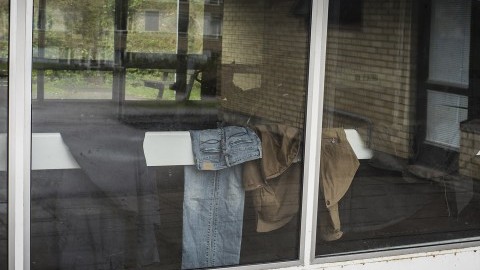
Since starting at the University of Massachusetts this September, I’ve noticed the intense love of music all around me on this campus. After all, everyone around has their headphones in, sometimes for every minute of the day. The white buds and Dre Beats are some of the most recognizable marks of fashion around us. Combined with new streaming technology, people have an opportunity to listen to almost unlimited amounts of music. So why would you ever take the headphones out of your ears?
This may seem great, but quickly becomes problematic. Headphones have been shown to cause hearing damage when played too loud, and I also can’t count how many times I have almost been hit by a biker because they were more focused on changing their song than who was in front of them.
These are serious concerns, but my main gripe is the antisocial effect headphones are having on campus life.
Having headphones in is a clear sign that you want to be left alone. It represents a sphere of seclusion in a public space. The more often we have music playing, the less likely we are to have interactions with others. It fosters an awkward environment of everyone ignoring each other.
Taking a look around any public place on campus, it’s hard to find anyone that’s willing to interact with a stranger. Walking to class you see more blocked ears than people interacting with friends. Conversing with those around you is supposed to be easy on a college campus, and yet it is becoming more and more difficult to do.
In our headphone culture, more people become unapproachable. Sol Republic, a prominent headphone brand, conducted a survey in 2014 to show just how widespread headphone use has become. Fifty-three percent of participants surveyed confirmed that they have headphones in for at least four hours a day. Four hours is a very large chunk of time to be isolated.
I have also seen people leave headphones in during a conversation, or even during class. When I am talking to someone and they leave their earbuds in, I feel as if they have no regard or respect for what I am talking about. I could not begin to imagine how a professor would feel when seeing people in their classes completely tuned out of the lecture and into their songs. It really sends a sign of disregard for someone else’s time and feelings. In an interview with Wired, Dr. Michael Bull, an expert on headphone usage, described music as an easy way to control the surrounding environment. An example would be what Bull calls nonreciprocal looking. Making eye contact with someone does not register in the same way because they understand the music listener is preoccupied. When students wear headphones during conversations or in class, then the nonreciprocal looking really starts to become a problem.
I do accept that music is a part of some people’s studying processes, however there are many places where you can find a community based music outlet. One of my favorite study spots is the Student Union. In the corner of the lobby there’s a piano that is free for anyone to play. Every time I’m there a few people have played to show the surrounding group their musical talent. It isn’t just random people playing a few notes. Rather, I have seen talented artists at work. There are multiple pianos around campus that are meant to be used for this purpose. These are incredible places to hear music and share experiences with others.
If classical isn’t your forte, then look no further than the dining commons. There are usually bands playing at the four main spots to eat on campus. On Sundays, there’s morning jazz and at late night dining there are often alternative bands and DJs playing. These are student groups who want nothing more than to put on a show for us. It adds an element of community to our music in a way that headphones never could.
I’m not saying that music is an inherently bad thing. Music can be a great way to start conversations and spread ideas—but when everyone keeps their music to themselves, these great qualities get stifled. So I call on everyone to rip their headphones out of their ears a little more often. Make an attempt to interact with those around you, instead of staying inside the headphone bubble. Don’t let the headphones make you antisocial. Break free from the seclusion of headphones and turn music into a communal activity once again.
Cameron Smith is a Collegian columnist and can be reached at [email protected].

















